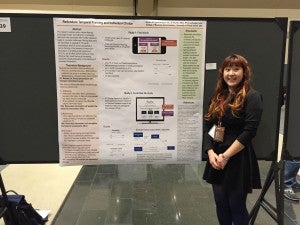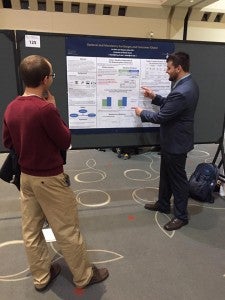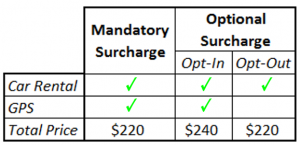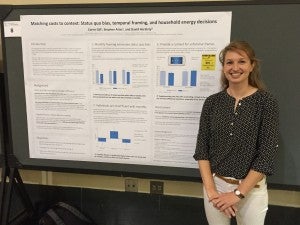In mid-November 3 Ph.D. students affiliated with the lab presented work at SJDM, a leading decision conference which draws international submissions.
“The research titled “Redundant Temporal Framing and Individual Choice” explores the effect of temporal presentation on consumer judgment and preference. A field study with 16,290 registered users of a popular mobile app and a follow-up lab experiment suggests how narrow framing encourages longer commitments.” See Jiyoon An’s poster by clicking here.
“My project focuses on consumer behavior and finds that some consumers like to have a choice in setting the price of products. Specifically, we examine how framing surcharges as optional instead of mandatory impacts their purchase intentions (purchase likelihood and satisfaction). We uncovered an interesting result; that consumers were willing to pay more to receive the same amount of resources or pay the same amount and receive less resources just because the surcharge was framed as optional instead of mandatory (see the graphic below).” See James Blair’s poster by clicking here.
“This research explores how we can encourage energy efficient choices at home. One reason individuals tend to stick with their energy inefficient habits is because those habits are familiar and comfortable, a phenomenon referred to as status quo bias. But, our research suggests that we can get individuals to switch to efficiency by describing the costs of inefficient choices in a cognitively fluent frame – a description that is perceived as easy to think about. For example, individuals typically get a monthly energy bill, so framing the costs of, say, using hot water for laundry instead of cold water as $5 per month may encourage more individuals to switch to cold water. Similarly, we find evidence for coupling annual costs of energy inefficient choices with information about total annual energy expenses.” See Carrie Gill’s poster by clicking here.
 URI Homepage
URI Homepage












